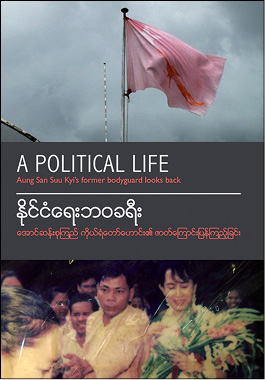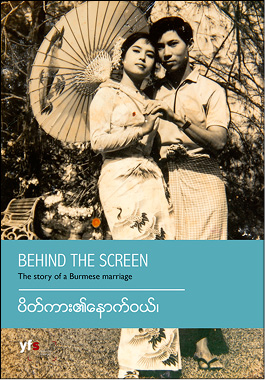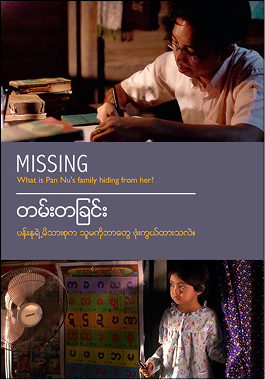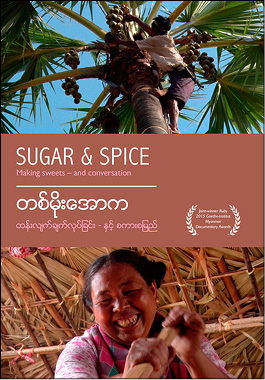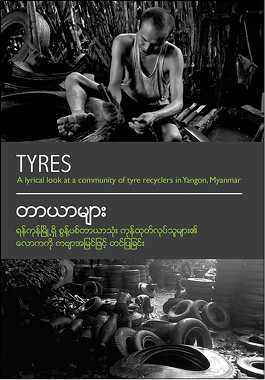Founded by Anglo-Burmese filmmaker Lindsey Merrison in 2005, the Yangon Film School (YFS) is an award-winning non-profit organization registered in Myanmar that was created in order to train and support a diverse community of young filmmakers and media workers in Myanmar, thereby promoting the country’s transition to a democratic nation. Since its first pioneering residential workshop in 2005, the trainings, and the cinematic output, have gone from strength to strength.
In 11 years of activity and, in spite of numerous constraints under the previous military government, YFS has held more than 70 training courses and workshops and provided solid skills free of charge to almost 200 students from 11 different ethnicities. Over 70% of YFS alumni are still working in the media and/or using film in their development work. In the last decade YFS has produced over 180 films, many of which have screened at 220 festivals at home and abroad and 24 of which—including Lady of the Lake, Tyres, Missing, Last Kiss, Behind the Screen, The Bamboo Grove and Myanmar’s first feature-length documentary Nargis: When Time Stopped Breathing have won some of the first awards ever bestowed on films from Myanmar.
Recent award-winning titles filmed in eight of Myanmar’s states and regions by multi-ethnic crews explore such diverse topics as living with HIV (The Music Lover), the personal consequences of political activism (Mother & Son, A Political Life), the challenges of the rural poor (Sugar & Spice, Slate, To School), the rights of people living with disabilities (Lovely Bones) and climate change (The Crocodile Creek).
The YFS Approach
YFS regularly brings together experienced filmmakers from around the world and young Myanmar men and women from all over Myanmar, some of whom have little or no prior experience in media, for intensive, often residential film trainings held primarily in Yangon, on many aspects of filmmaking—but with a particular emphasis on documentary.

Fig.1 YFS students Khin Warso (on camera) from Mon State and Arrow Luck from central Myanmar during basic training
YFS students come from all walks of life—including film, journalism, literature, photography, fine arts and IT, but also the health and development sectors. From the outset, the school has been committed to training members of Myanmar’s many different ethnicities (40% of students are non-Bamar) and religious groups and to reaching out to remote communities, the vulnerable and the disadvantaged. The School operates a policy of gender parity on courses; many YFS alumni—especially women— have achieved prominence as filmmakers and are now spearheading a new generation of cultural and social actors, contributing to a more open society.
In 2014 the School joined forces with Search for Common Ground and Shalom Foundation to deliver a six-week documentary training for 12 youths from Kachin, Kayah, Kayin and Mon, with participants traveling to these four states to film short documentaries on the topic of identity. Of the four films produced, one—My Leg, about a prosthetics workshop in Kayah—has screened to acclaim at seven international film festivals and garnered a Special Mention award.
Having grown steadily over the last decade, the School now provides a fully-fledged three-year study program offering, besides introductory courses in documentary filmmaking and editing, classes in film history, analysis, sound design and postproduction, screenwriting, fictional filmmaking and production. Students are taught to develop a broad range of skills—creative, ethical, technical, managerial—in both documentary and fictional filmmaking. They also learn how to prepare verbal presentations or “pitches” of their projects for YFS fellowships and other grants which may be used towards the production of graduation films in their third year.
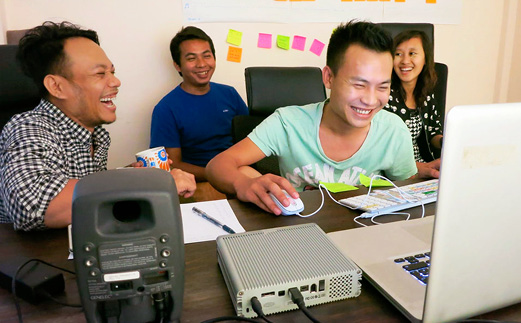
Fig.2YFS editing trainer Zaw Naing Oo (left) introduces Kayin YFS student Saw Eh Doh Poe to non-linear editing software. They are observed by fellowstudents Ngwe Ngwe Khine (right, from Rakhine State) and Sai Naw Kham (left, from Shan State).
In 2006, YFS graduates founded the School’s production arm, Yangon Film Services, a social enterprise within the School which produces films for local and international non-governmental organizations among others, providing students with invaluable opportunities for vocational training in a professional context.
Among almost 40 tailor-made documentaries, promotional films, television series and other audiovisual content produced by Yangon Film Services in the last decade are films about HIV/AIDS (My Positive Life, Stigmatize This!), community forestry (Our Forests, Our Future), vocational training (Rays of Hope, Earn as You Learn), safe migration (The Long Way Home) and children’s rights (Let’s Get on the Bus), as well as initiatives in rice growing (Fields of Dreams), irrigation (Stepping Up), disaster preparedness (More than a Tree) and child-centerd education (the awardwinning A Bright Future). An eye-opening film on midwifery Myanmar Midwife is now helping to promote better primary health care.
In 2008, the School added screenwriting and documentary- influenced fictional filmmaking known as “True Fictions” to its curriculum. This approach has already resulted in award-winning and high profile short films, such as Missing. One of the first cinematic works to broach the wrongs of the previous military government in Myanmar, this film has had a deep effect on audiences.
An 8-part drama series about the rule of law, The Sun, the Moon and the Truth, which was edited and post-produced by YFS, was seen by over five million people in Myanmar; YFS was recently commissioned to create the 12 x 30-minute scripts for Season Two of this series. Thanks to a train-to-teach programme begun in 2009, many YFS graduates are now passing on their skills to their peers. Several courses are now taught jointly by international and local trainers, in English and Myanmar language.
Conscious of the parlous state of the country’s archive holdings, the School cooperated with the Goethe Institut and Memory! Cinema Heritage Film Festival to train a film archive researcher to assess some of the nation’s tangible cinematic heritage. The School made its own first foray into film restoration in 2013 when it joined forces with the Goethe Institut and German company Arri to digitally reconstruct Maung Wunna’s charming 1972 film Chè Phawa Daw Nu Nu (Tender are the Feet). The completed restoration opened the Berlinale’s Forum section in 2014 and also enjoyed screenings at festivals in Phnom Penh, Brisbane, Singapore and Tokyo. A special Museum Edition DVD containing essays about the film and the restoration is due to be released in 2017. Having begun trainings in participatory video in 2014, the School launched its Travelling Cinema Programme in the same year. This program sees students travel to remote and/or rural areas where they facilitate participatory video workshops to help local communities create their own short videos about a topic which affects their lives. YFS students have since facilitated Travelling Cinema placements in Chin, Kachin, Rakhine, Shan and peri-urban Yangon, thereby giving a voice to thousands of people in marginalized communities. Topics addressed in these often-moving community videos include drug abuse, water contamination as a result of mining, discrimination, the hope of a better life for children; better working conditions for tea planters and PLWD, and the challenges of recovery following flooding.
During the School’s first course in Docu-animation held at the end of 2016, students learned how to combine audio-documentary testimonials with animation to create three powerful one-minute spots against gender-based violence. The School is currently cooperating with a number of partners including the Gender Equality Network (GEN) and the Department of Social Welfare to launch these spots nationwide across a number of platforms on international women’s day on March 8, 2017.
Going Beyond the Film School
In September, 2015 the School was honored to receive the Japan Art Association’s Grant for Young Artists Award as part of the prestigious Praemium Imperiale. This major accolade reflects the School’s significant achievement in training young Myanmar filmmakers to world class standards. The pursuit of artistic freedom and identity is at the heart of the YFS remit. What makes Yangon Film School unique however, is its ability to work at the interface between art and development. The School’s activities have far-reaching impacts that go far beyond film trainings to support many of Myanmar’s needs as the country transitions to democracy—from bridging divides via cultural expression, strengthening democratic practices, technological proficiency and “best practice” in the film industry, to expanding economic opportunities and international cooperation, especially for women and the disadvantaged, and creating awareness for human rights, including gender and environmental issues.
The School is currently expanding its curriculum to meet the growing demand in Myanmar for scripted and non-scripted content. YFS is also restructuring and strengthening its local management workforce as part of an exit strategy designed to facilitate transfer of the School’s operations to a Myanmar-run administration.
One key to the success of this handover will be the identification and funding of a permanent home for the school—a goal for which the school would like to enlist the support of partners willing to share its vision including, it is hoped, the new government.
